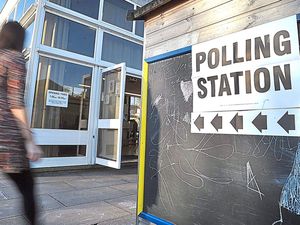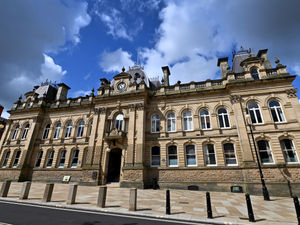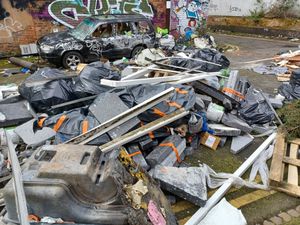Political election cycle under intense scrutiny
A report requesting Sandwell council to change its election cycle will be decided by councillors at a special council meeting next week.

The changes form part of the council’s improvement plan, following this year’s government intervention into the council.
At the time, Michael Gove, the then levelling up secretary, announced the intervention package, influenced in part by the ‘Value for Money’ review by external auditor Grant Thornton.
The report summarised widespread financial mismanagement within the council, including the £22.1 mis-sell of Providence Place; issues with bin contracts at Serco, and a breakdown in trust between councillors and local government officers.
If whole council elections were to take place all elected councillors would serve a four-year term. Currently, Sandwell’s election cycle elects a third of councillors every year – or 24 out of 72 councillors.
Should councillors resolve to change the current electoral cycle and move to whole council elections – electing all 72 councillors at a time – they could begin as early as May 2023.
In a consultation, 487 people were asked by Sandwell council: ‘How often would you prefer to elect councillors to Sandwell Metropolitan Borough Council?’
Of those who responded, 69 per cent voted to retain the current electoral cycle of thirds. A ‘regular refresh of political debate and political ideas’, and ‘newly elected members working alongside more experienced councillors’ were cited as reasons.
Reasons given by those preferring whole council elections related to ‘better use of public resources’ and ‘providing more stability over a longer political period’.
At present, there are 233,400 eligible voters in Sandwell.
Sandwell is split up into 24 electoral wards, represented by 72 councillors – with three councillors elected in each ward. Currently, a third of all council seats are elected in three of every four years.
If approved by Sandwell council, there will be one local election every four years – starting next May – where all of Sandwell council’s seats will be up for grabs.
Councillors are said to be swayed towards keeping the current local election system in thirds. But the Electoral Commission – the independent body which oversees elections – recommends all councils, including Sandwell, to have all-out elections.
They argue a move back to whole council elections will provide a stronger local democracy, greater clarity for the electorate and encourages a greater understanding of elections.
The council’s own improvement plan, approved in June, confirmed a “commitment to adhere to the directions issued by the Secretary of State”. This includes the need to “explore and consider the change to whole council elections as soon as practicable”.
And five local authorities – Rotherham, Doncaster, Birmingham, Slough and Liverpool, who have all had differing levels of government intervention, have moved to a cycle of whole council elections to assist with creating political stability.
In a case study supplied by local government officers employed at Sandwell, four councils – Harrogate; Slough; Worcester; and Derby – approved to change to whole council elections. Two – Tandridge; and Wokingham – rejected the proposals.
While running all-out elections is costly – at approximately £420,000 every four years – it is significantly cheaper than Sandwell council’s current system of thirds. All out elections include the police and crime commissioner, the West Midlands mayor, and parliamentary elections.
The current system costs £380,000 to run local elections in thirds, but includes a varying cost of £260,000 for other local elections.
Ten years of all-out election would cost the Sandwell taxpayer £1.26 million. The current system of thirds costs would total £2.64 million. Sandwell council could save £1.38 million over a decade.
The report will be discussed next Tuesday.



